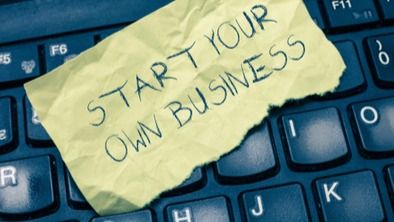
The Economy Triggers a Rebirth of the Entrepreneurial Spirit
Over the next couple of weeks, six finalists will be auditioning for the opening of “staff writer” at Consumerism Commentary. Each will be providing two guest articles to share with readers. After the six writers have shared their guest articles, readers will have an opportunity to provide feedback before we select the staff writer.
This article is presented by Debbie Dragon, a full time freelance writer and co-owner of ReliableWriters.
When farming was a common way of life, more Americans were self-employed than not. With the growth of corporations in recent decades, many Americans decided to get on the corporate bandwagon in hopes of climbing the ladder to success. In recent years, due partly to the struggling economy, many people are turning to self-employment. When people are laid-off, many take their skills to the marketplace and become entrepreneurs.
Thanks to technology, many businesses can be started from home and with little capital. This is a good thing, since banks are hesitant to lend money to anyone, let alone a business start-up. For a few hundred or a couple thousand dollars, a business can be set up complete with a logo, website and business structure. While it’s true that a poor economy may mean less people have the money to buy whatever you sell — many successful businesses start during a recession and are then positioned perfectly when the market turns around.
According to the last U.S Census, more than 10 million Americans are self-employed. I would be willing to wager that the number has increased drastically in just the last five years, with more people starting freelance and home based businesses “on the side” to increase their income or as a replacement for a job lost to the economic conditions. Self-employed Americans do everything from construction to accounting to crafts, but the most commonly selected industry on self-employed income tax returns is “professional and business services.”
In previous decades, there was a tendency for self-employed Americans to be male and white. During the years between 1976 and 2003, a surge of women entrepreneurship blossomed, with an increase from 27% of self-employed workers being women to 39%. Many women start small businesses in an effort to both contribute to the family income and still have the flexibility to raise their families. You’ll also notice that self-employed people are over-represented at the top of the income curves for America, helping prove that greater rewards are given to those who take larger risks (in some cases). Entrepreneurship has always been valued in American culture, and a poor economy seems to nurture it rather than squash it.
For every depressing statistic and news story given about the economic condition it’s almost as if the entrepreneurial spirit is awakened in people who are determined not to sit by helplessly as jobs are lost. The economic conditions serves as motivation for some, whether that motivation is driven by plain fear — or hidden ambition.
This is a guest article by Debbie Dragon, one of six finalists interested in being Consumerism Commentary’s staff writer.

Article comments
The San Francisco Bay Area is entrepreneur heaven right now it is extremely exciting. Google, Youtube, Twitter, Yahoo, Apple, E-Bay, Adbrite, Federated Media, Admob are all here and I’m meeting with them constantly to listening to their ideas. Amazing.
Flexo, very interesting choice of writer’s you’ve chosen. I’m taking notes and it’s making me smile. All women too, nice.
I don’t think JJ is a woman.
“When farming was a common way of life, more Americans were self-employed than not.”
“During the years between 1976 and 2003, a surge of women entrepreneurship blossomed, with an increase from 27% of self-employed workers being women to 39%.”
Citations? Statistics? Please put this in the article; otherwise, it just feels sloppy.
-Erica